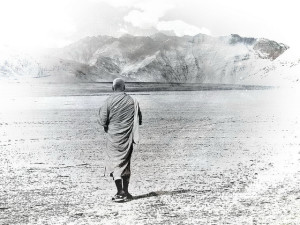
When Bachendri Pal, the first Indian woman to climb the Mount Everest, was addressing a gathering of corporate professionals, one of the leaders in the audience asked, “Your life seems so complete, but you have set such a high benchmark of accomplishment for the rest of us that our lives can never feel remarkable enough.” Reflecting on the question, Ms. Pal responded, “We all have an Everest within us, that we can aim to conquer.”
So true. Each of us has our own share of inner challenges that are worth overcoming. They come in the form of our heightened fears, insecurity, jealousy, doubts, aggression, laziness, anger, judgmental nature and so on. While we get easily consumed by chase of material progress, we lose sight of the deeper and more meaningful work that we can do within ourselves.
Why bother?
Unless our inner personality issues are resolved, they continue to haunt us in all aspects of our life. Our emotional volatility leads to dissatisfying relationships, our distorted self-image hinders good judgment, our limiting beliefs produce imbalance and sub-optimal health, and our lack of clear purpose in life results in undercurrents of unhappiness and lack of fulfillment.
As Mahatma Gandhi said, ‘Working on ourselves is the noblest deed we can do in this world.’ Behind every great individual is a burning desire to overcome their inner demons – what made Gandhi an inspirational leader was his commitment to be fearless of his oppressors, what made Mother Teresa exceptional was her devotion to nurture her selfless nature. Such work builds character, leads to a more meaningful life, and offers a great sense of personal accomplishment and completeness. Moreover, our individual progress in this way makes our world a better place.
6 steps to the path within
1. Acknowledge your personal Everest
To embark on this journey, you need to begin by first recognizing what your personal Everest is. What comes in the way of your building deeper relationships? What holds you back from enjoying greater success at work? How do…



















